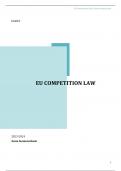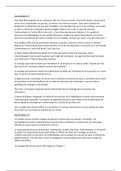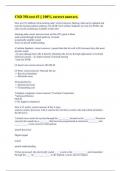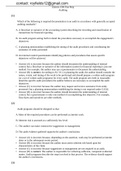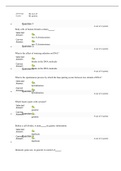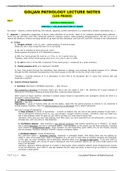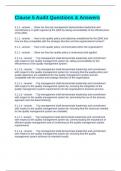College aantekeningen
Notes EU competition law (16/20)
- Instelling
- Universiteit Gent (UGent)
Those are complete notes from all the classes of the EU competition law classes. They are very complete (even though there might be some spelling faults here and there). I got a 16/20 at this exam so, there are complete and there are all you need to bring with you at the exam!
[Meer zien]
